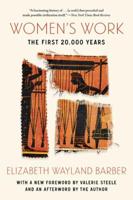Publisher's Synopsis
Al-Farabi of Baghdad (c. 870-950) is the first major representative of the medieval Arabic Aristotelianism which came to influence the Christian West so profoundly. In the Islamic world his writings on logic set the pattern for the future and virtually created Islamic philosophy. He is also important as a witness to the study of Aristotle in late antiquity, demonstrating a knowledge of Galen and the exegetical tradition of Porphyry. Aristotle's treatise was famous in antiquity for its study of the simple, unconditional proposition, for its examination of modal sentences containing `necessary' and `possible', and above all for the notorious chapter on future contingents - a problem fully alive in twentieth-century debate. This translation is based on a fresh study of the Arabic manuscripts. An introduction and notes make this intriguing document accessible to all for whom it contains important matter.;Classicists, historians of philosophy and logic, medievalists, Arabists, students of Islamic thought.









